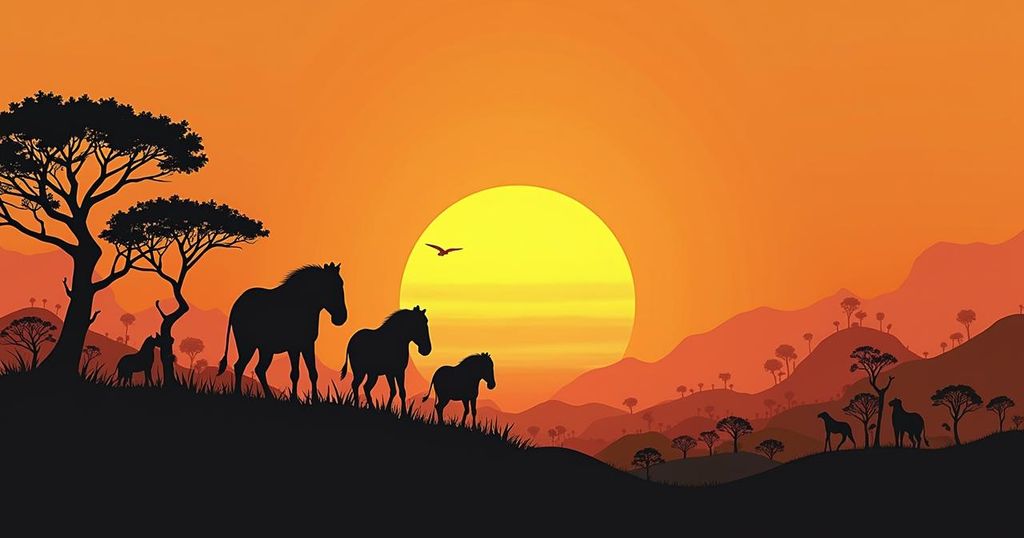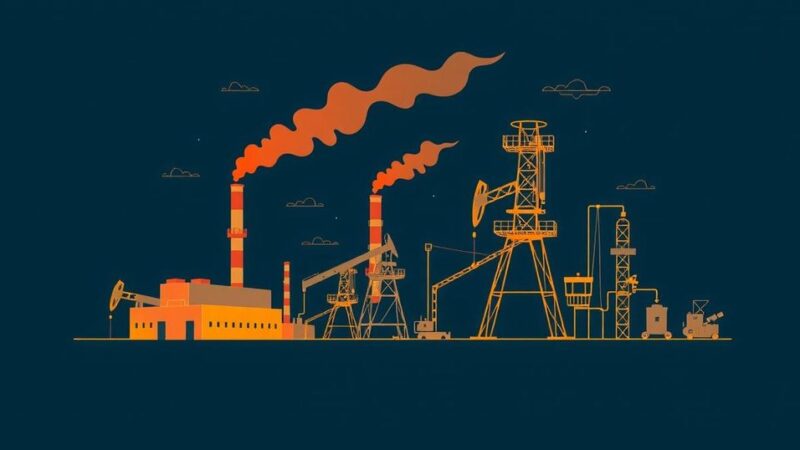As of 2030, only 17% of the Sustainable Development Goals have been met, with experts blaming climate change for this deficit. Deforestation, particularly in the Global South, compounds issues of poverty, violence, and instability, particularly in countries like Liberia where inadequate governance exacerbates educational and economic challenges. Transformative reforms are essential for overcoming these intertwined crises.
As we approach the year 2030, only 17% of the Sustainable Development Goals (SDGs) have been achieved, and global experts increasingly attribute these disappointing results to climate change. Severe weather events and natural disasters significantly hinder efforts aimed at reaching these objectives, affecting predominantly nations in the Global South, particularly the 95% of countries that face the most adverse impacts. The reality is that those in power continue to engage in deforestation instead of supporting urgent reforestation initiatives. This ongoing environmental degradation is primarily overlooked during discussions convened by high-profile figures, including the Secretary-General of the United Nations, who gather to pinpoint climate change as the root cause of unmet SDGs. Notably, wealthy nations, such as Saudi Arabia, finance these initiatives, which some regard as mere window dressing. The predicament has even inspired artists, including the renowned musician Akon, to address these concerns in his song, “Blame It on Me.” Amidst this ongoing blame game, it is evident that those in authority neglect to accept their role in creating the issues exacerbating climate change. In Liberia, rampant deforestation has led to severe consequences, including wildlife disturbances as elephants venture into human communities due to loss of natural habitat, as well as catastrophic floods that result in both fatalities and injuries. The education system suffers as students are forced to learn in inadequate conditions, reflecting a national failure despite Liberia’s rich natural resources, including a vast array of valuable timber species. This pervasive lack of quality education stifles economic growth and development, perpetuating systemic poverty. Notably, poverty has emerged as a catalyst for violence, occasionally manifesting as coups or civil unrest. According to a 2022 study by Afrobarometer, a significant majority of Liberians believe the country is on a detrimental trajectory, echoing broader trends of increasing poverty regionally and globally as observed by economist Thomas Piketty in his 2022 publication.
The current situation regarding climate change and sustainable development remains dire as the year 2030 approaches, and the global community grapples with the implications of failing to meet the Sustainable Development Goals. Climate change has been increasingly identified as a significant barrier to achieving these goals, particularly for countries in the Global South, where the effects of environmental degradation due to deforestation and poor governance are most acutely felt. The connection between deforestation, socio-economic challenges, and political instability is evidenced in Liberia, a nation rich in forest resources yet plagued by poverty and lack of educational access. This context highlights the urgent need for responsible resource management and political reform to mitigate the impacts of climate change and foster sustainable development.
In conclusion, the ongoing struggle to meet Sustainable Development Goals is intricately linked to the challenges posed by climate change and deforestation. The failure to accept responsibility for environmental degradation by those in power leads to a cycle of poverty, violence, and instability, particularly in countries like Liberia. To disrupt this cycle and promote meaningful change, it is imperative to prioritize good governance, sustainable practices, and an emphasis on education. The transformation of the electoral system towards fairness and justice will enable the election of competent leaders committed to environmental stewardship and socio-economic reform. Until such changes are made, precarious conditions will persist, undermining progress globally and locally.
Original Source: frontpageafricaonline.com






